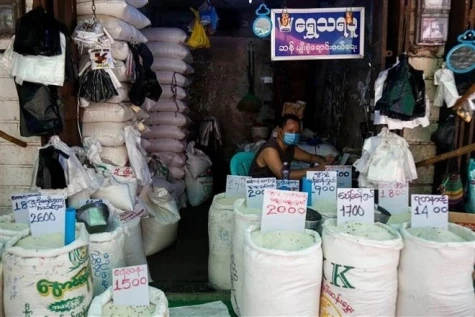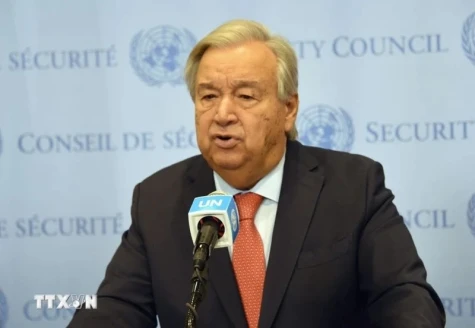At their recent informal meeting in Budapest, leaders of the European Council adopted the Budapest Declaration on the New European Competitiveness Deal.
In the context of the increasingly fierce economic challenges, improving competitiveness has become an urgent requirement for the EU to catch up with the speed of the world's leading economies.
The Budapest Declaration outlined measures to improve the EU’s competitiveness on the growth track. Accordingly, one of the top priorities is to maximise the role of the EU single market.
The current EU single market is still modest, allowing only the free movement of goods, services, capital and people within the bloc. Therefore, many experts have proposed that the EU expand the market to the energy, telecommunications, finance and defence sectors to overcome fragmentation, as each member state applies different regulations.
EU leaders also stressed the need to introduce urgent measures to reduce energy prices, which is why European companies are at a competitive disadvantage compared to non-EU businesses.
Former European Central Bank (ECB) President Mario Draghi pointed out that even though energy prices have fallen considerably from their peaks, EU companies still face electricity prices that are 2–3 times those in the US, and natural gas prices paid are 4–5 times higher.
Under the Budapest Declaration, the EU pledged to reduce administrative burdens to create a more favourable environment for businesses, especially small and medium-sized enterprises.
The union set a goal of putting Europe at the forefront of research and innovation globally, especially in disruptive technologies and delivering on the objective of meeting the 3 % GDP expenditure target on R&D by 2030.
It also targets strengthening the EU’s technological capabilities, accelerating the digital transformation across industries.
The Budapest Declaration was adopted as the EU faced pressure on its growth race with the world's leading economies.
The EU's GDP share in the global economy has halved over the past 20 years.
The International Monetary Fund (IMF) said in its latest economic outlook for the EU that without proper adjustment, the continent’s annual GDP growth rate for the next 10 years might be reduced to just 1.45%.
In a recent letter to the members of the European Council, President of the European Council Charles Michel warned that if this worrying trend is not quickly reversed, the EU could fall behind other economies in the race.
IMF economists also recommended that the EU promote strong investment, especially in infrastructure and green technology, to avoid the risk of falling further behind in the global economy.
This is not the first time the EU’s economic competitiveness has been put on the table.
Sharing the same view with the President of the European Council, former Italian Prime Minister Enrico Letta said that the growth gap between the EU and leading economies is growing.
In its latest report, published at the end of October, the IMF warned that the gap between the EU and the US’s GDP would further widen by the end of the decade.
The difference in productivity is reflected in most sectors of the economy, but most clearly in technology. The IMF said that Europe's technology sector’s productivity has been virtually stagnant since 2005, while it has grown by nearly 40% in the US.
Previously, former ECB President Mario Draghi highlighted the EU's weakness in advanced technology development as a key issue.
In that context, the measures outlined in the Budapest Declaration are expected to create a foundation for the EU to reverse the situation and improve its economic competitiveness.
However, experts say this is not an issue that can be solved overnight, stressing that this requires the joint efforts of all member countries of the union.
NDO






























